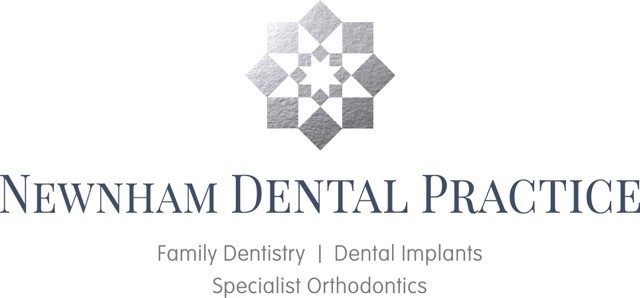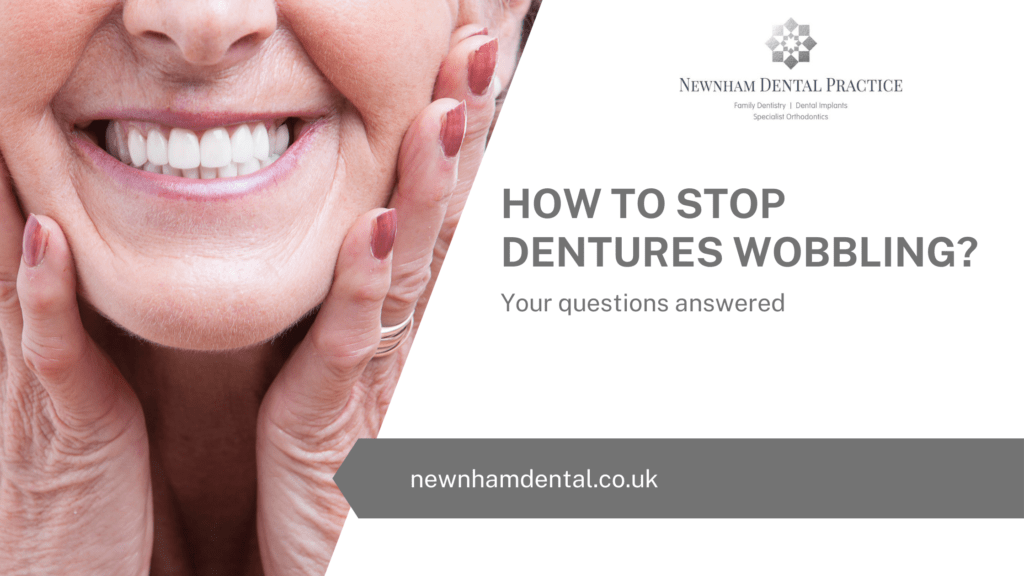If you or a loved one wears dentures, you might have heard them complaining about them being ill-fitting or not providing sufficient chewing efficiency. While these problems are commonly associated with dentures, the good news is that they can be easily prevented or treated. In this article, we discuss the various causes of wobbly dentures and overcome this problem. So, read on to know more.
What Are Things One Can Do To Get Used To Dentures?
Wearing your dentures for the first time can be a challenging experience for some, and it takes time for your mouth to adjust to the new appliance. Fortunately, there are things you can do to get used to the dentures quickly:
- Facial Muscle Exercises – a common problem dentures wearers face is that their dentures keep slipping. This occurs because the facial muscles have not adjusted to the new appliance. Performing facial muscle exercises can help you adjust to your new dentures relatively quickly.
- Speaking and Singing – the more you speak with your dentures, the more your tongue and facial muscles will get used to them, and the more comfortable you will be with your new appliance. Did you know that signing can also help adjust to your new dentures?
- Using an Adhesive – if you have difficulty keeping your dentures in place, you can try using an adhesive to improve their retention.
How Come Dentures That Once Fit Can Suddenly Be Too Big?
Removable dentures gain support from underlying soft tissues and jawbone. As a result, they exert direct pressure on these tissues, leading to continuous changes in the shape and density of the bone tissues. This is why dentures that previously used to fit perfectly do not fit anymore after some time. To fix this issue, your denture will either reline these dentures or make new dentures for you according to the current shape of the jawbone.
Is It Difficult To Eat With Partial Dentures?
Partial dentures derive their support from oral soft tissues, jawbone, and adjacent healthy natural teeth. Despite this, partial dentures do not provide the same chewing efficiency as natural teeth. Therefore, dentures wearers often have difficulty eating soft, especially hard and sticky food items. However, most denture wearers adapt to the new appliance and face lesser difficulty in chewing food.
Are There Alternatives To Denture Adhesives?
If you are not happy with the retention of your removable dentures, your dentist may try applying an adhesive to the denture’s underside to improve their fit. However, if someone does not want denture adhesives, there is an alternative. Your dentist may give you implant-supported overdentures that offer superior chewing efficiency and are longer lasting.
Is It Possible For A Dental Bridge To Come Loose?
A dental bridge is bonded to the supporting natural teeth using an adhesive. Although dental adhesive ensures that teeth bridges remain firmly bonded, some cases where a tooth bridge may become loose. This situation can arise either due to adhesive failure or the fracture of the supporting tooth. Regardless, a dislodged bridge can be reattached as such by rebonding. However, if the bridge has been dislodged because of a tooth fracture, your dentist will have to restore the tooth first and prepare a new bridge.
Can Fake Teeth Chew Just As Good As Real Teeth?
No matter how good your false teeth are, they can never be as good as the real ones. All tooth replacement options have their own merits and demerits. For example, removable dentures do not provide sufficient chewing efficiency and get stained quickly. Similarly, dental bridges require the removal of healthy dental enamel for their attachment. Dental implants are the only option that can be considered as the next best thing to natural teeth. So, if you want a natural-looking and durable tooth replacement option, you should consider dental implants.
How Long Does It Take New Denture Wearers To Eat Food?
If you have just started wearing removable dentures, your dentist will advise you to a soft diet for the next few days. This will not only reduce the soreness of the underlying oral soft tissues and help you gradually adapt to your new dentures. Once you feel that your gums aren’t sore anymore and bite with your dentures easily, you start eating a regular diet. However, it must be kept in mind that it may not be possible for you to chew very hard foods like nuts or steaks, even after getting used to your dentures.
What Are The Pros And Cons Of Having Dentures?
The pros of removable dentures include: cost-effectiveness, potential for repairing, and a time-tested tooth replacement option. On the other hand, removable dentures have several drawbacks, such as the frequent need for repair or replacement, the potential for staining, the tendency to fracture easily, and insufficient chewing efficiency.
Why Do Certain Teeth Feel Loose When I Eat?
If you are referring to your natural teeth that feel loose when eating, it may be because of underlying gum inflammation. In advanced stages of periodontal disease, there is widespread damage to the jawbone, which makes the teeth mobile within their sockets. As a result, teeth feel loose while eating. On the other hand, if you are referring to your false denture teeth, you may feel that they have become loose due to the time-dependent changes in the shape and density of the underlying jawbone.
Don’t let your missing teeth come in the way of your smile and self-confidence. Instead, get your teeth replaced with removable dentures to get a brand-new, healthy smile. If you are looking for a dentist for getting dentures in Newham or Ely, you should consider Newham Dental Practice – a state-of-the-art dental practice that takes care of all your dental needs under one roof. So, book a new appointment today and take your first step towards a lasting and healthy smile.

